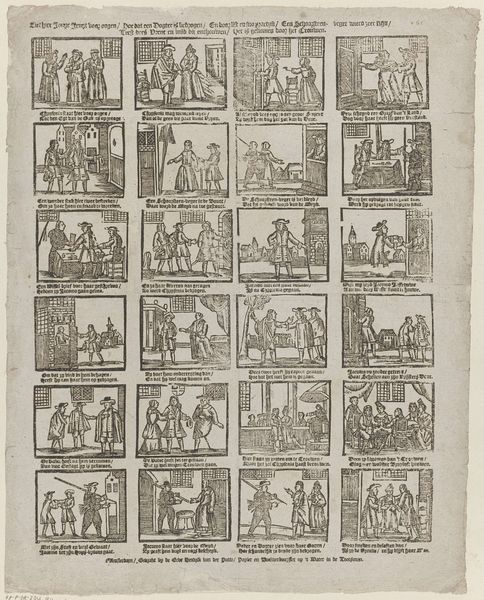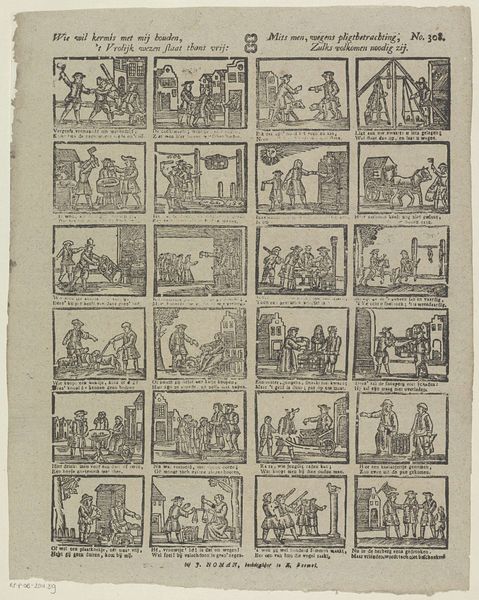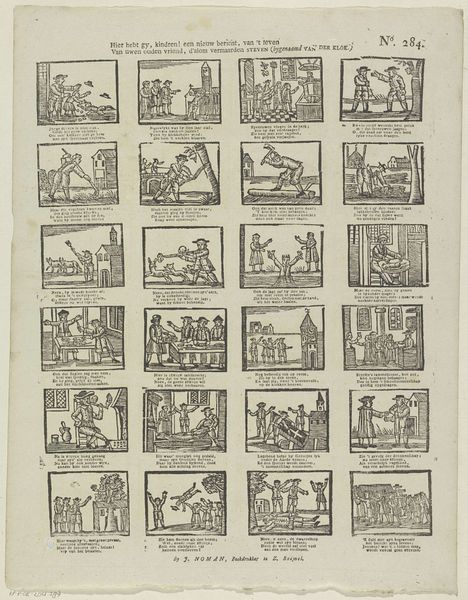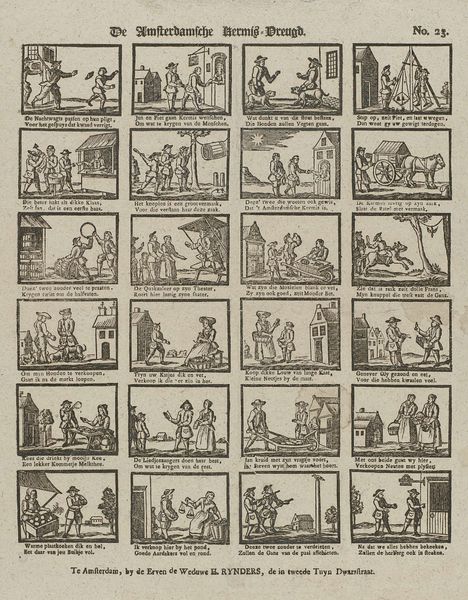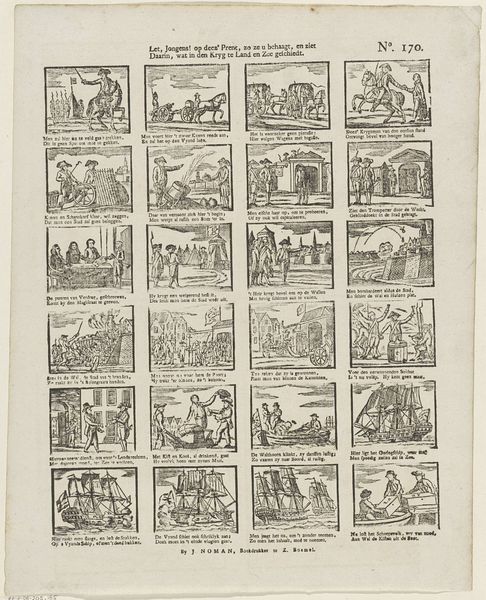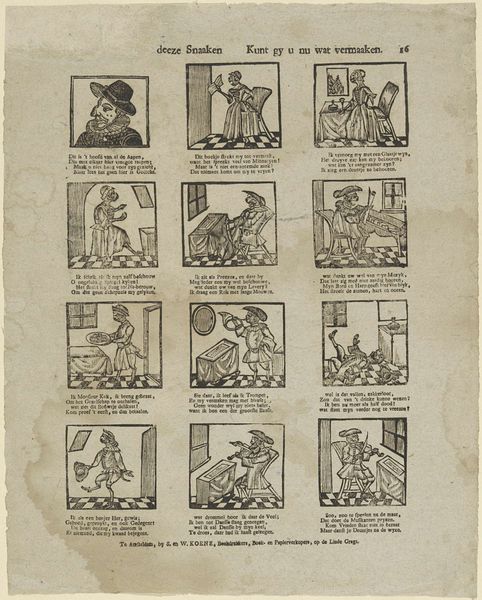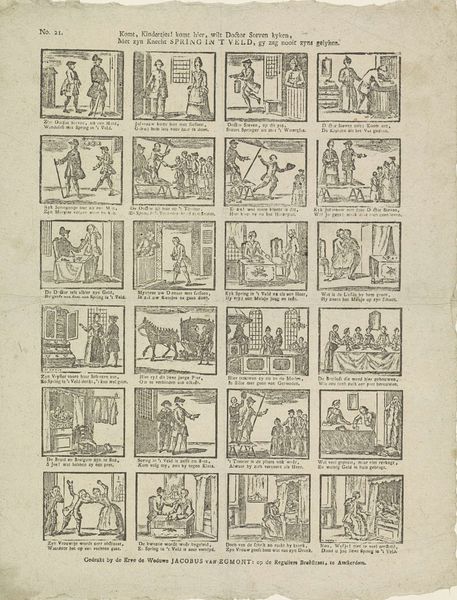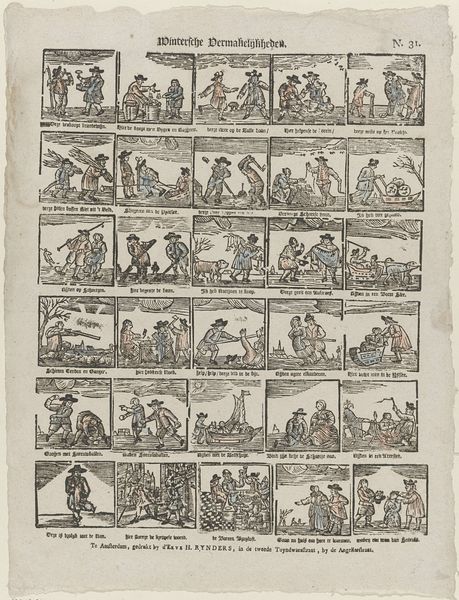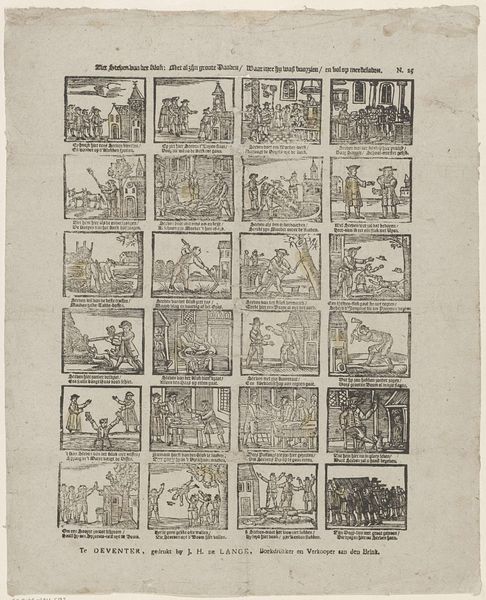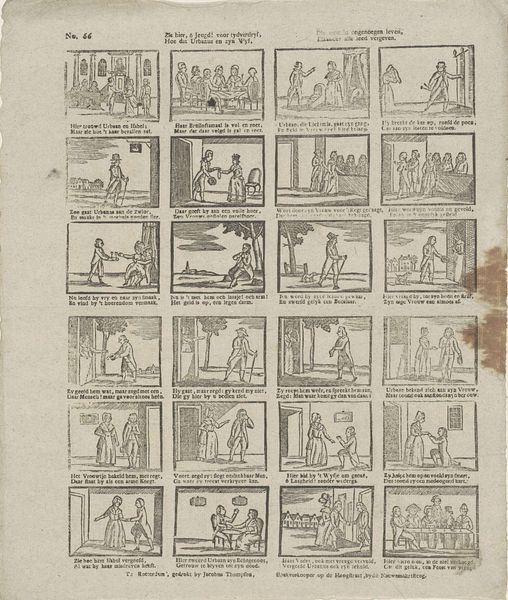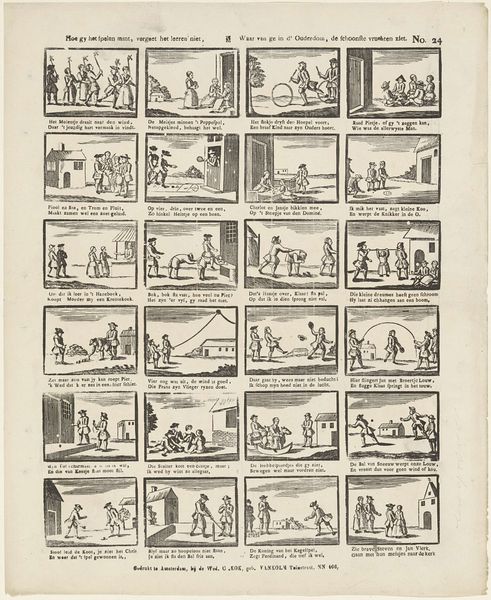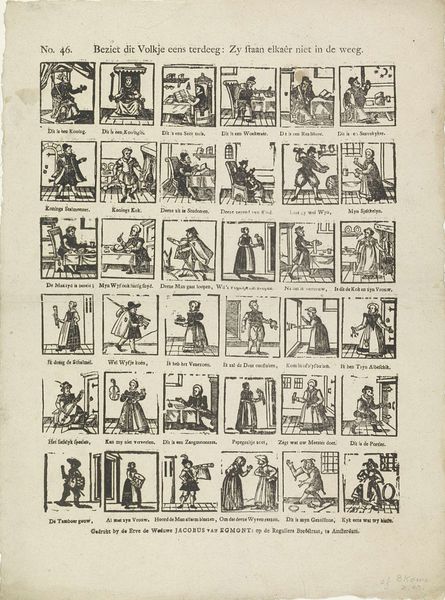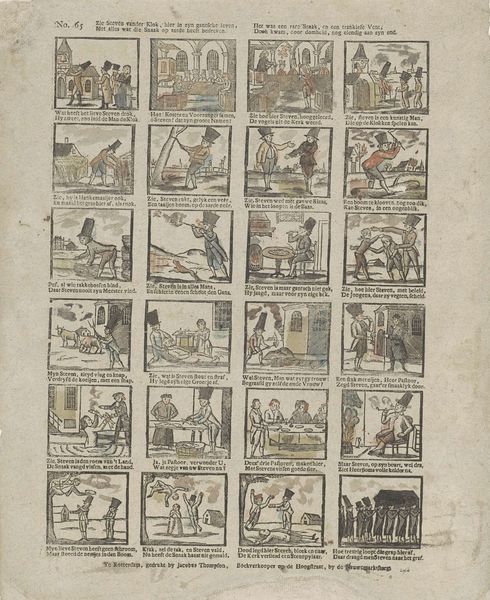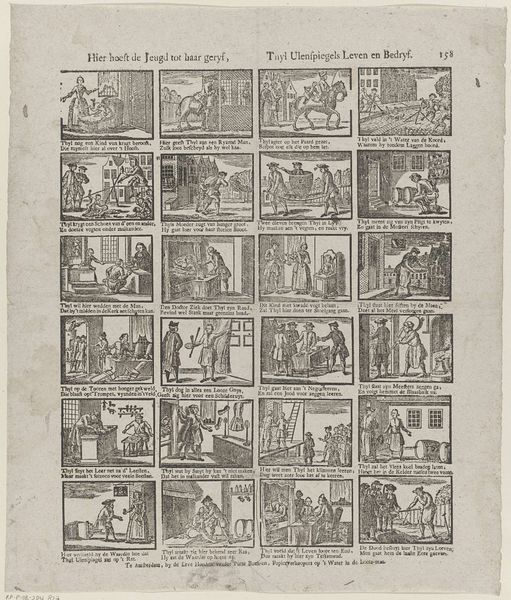
Allon, sla pauken! blaas trompetten! / Kom lustig, boeren! pak je voort: / Schaf op; geef geld; dat is het woord. / Waarom? gy kunt het niet beletten 1761 - 1804
0:00
0:00
ervendeweduwejacobusvanegmont
Rijksmuseum
print, engraving
#
narrative-art
#
dutch-golden-age
# print
#
comic
#
genre-painting
#
engraving
Dimensions: height 411 mm, width 310 mm
Copyright: Rijks Museum: Open Domain
Curator: I am intrigued by "Allon, sla pauken! blaas trompetten! / Kom lustig, boeren! pak je voort: / Schaf op; geef geld; dat is het woord. / Waarom? gy kunt het niet beletten," a print made sometime between 1761 and 1804. It’s fascinating that this comic strip-like work is categorized as Dutch Golden Age art. The series of small images seems to narrate a story, perhaps about social inequalities. What narrative or political commentary do you think this work conveys, considering its historical context? Editor: I'm drawn to the almost satirical tone. I get the sense there's some kind of commentary on power and wealth in play, but I can’t put my finger on the specifics. It is not subtle. What do you see in this piece? Curator: The choice of printing, accessible and reproducible, aligns with potentially disseminating subversive ideas. The imagery, while appearing as simple genre scenes, likely critiques the socio-economic stratification of the time, with "boeren" or farmers, seemingly being coerced for funds. Given the timeframe, and its likely connection to the Dutch Golden Age and the Enlightenment, it makes me consider whose interests it serves. The artist likely wanted to call attention to income inequality. Is this fair? Does it challenge or perhaps reproduce dominant class biases of the era? Editor: That's fascinating! I hadn’t considered the connection to the social critiques emerging during the Enlightenment. Curator: It highlights the role of art as not just aesthetic expression, but as a tool for social commentary and, potentially, resistance, engaging with questions of power, economic justice, and representation. I wonder how effective you feel this form of social commentary may have been. Editor: I see that this piece can really push me to question the role of art in both reflecting and shaping societal values during that period. I learned a lot! Thanks. Curator: My pleasure, I learned from you as well! Thank you for your reflections.
Comments
No comments
Be the first to comment and join the conversation on the ultimate creative platform.
